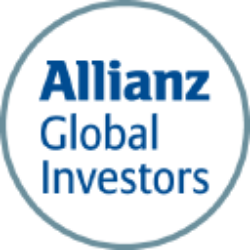
FMP

PIMCO Income Opportunity Fund
PKO
NYSE
Inactive Equity
PIMCO Income Opportunity Fund (the Fund) is a diversified closed-end management investment company. The Fund's investment objective is to seek current income as a primary focus and also capital appreciation. The Fund invests a substantial portion of assets in a variety of mortgage-related securities and may hold common stocks, including those received from conversion of other portfolio securities. The Fund may invest up to 40% of its total assets in bank loans (including, among others, senior loans, delayed funding loans and revolving credit facilities). The Fund may also invest up to 40% of its total assets in securities of issuers economically tied to emerging market countries. The Fund invests in range of portfolio sectors, which include the United States Government Related, mortgage, non-agency mortgage, high yield credit, emerging markets, emerging markets and other. Pacific Investment Management Company LLC is the investment manager of the Fund.
23.77 USD
-0.0900002 (-0.379%)
DuPont Analysis
The DuPont analysis, pioneered by the DuPont Corporation, offers a structured approach to assessing fundamental performance. It involves breaking down the return on equity (ROE) into various components, aiding investors in comprehending the factors influencing a company's returns.
ROE = Net Income / Average Total Equity
ROE = (Net Income / Sales) * (Revenue / Average Total Assets) * (Average Total Assets / Average Total Equity)
The company's tax burden is (Net income ÷ Pretax profit). This is the proportion of the company's profits retained after paying income taxes. [NI/EBT] The company's interest burden is (Pretax income ÷ EBIT). This will be 1.00 for a firm with no debt or financial leverage. [EBT/EBIT] The company's operating income margin or return on sales (ROS) is (EBIT ÷ Revenue). This is the operating income per dollar of sales. [EBIT/Revenue] The company's asset turnover (ATO) is (Revenue ÷ Average Total Assets). The company's equity multiplier is (Average Total Assets ÷ Average Total Equity). This is a measure of financial leverage. Profitability (measured by profit margin) Asset efficiency (measured by asset turnover) Financial leverage (measured by equity multiplier)